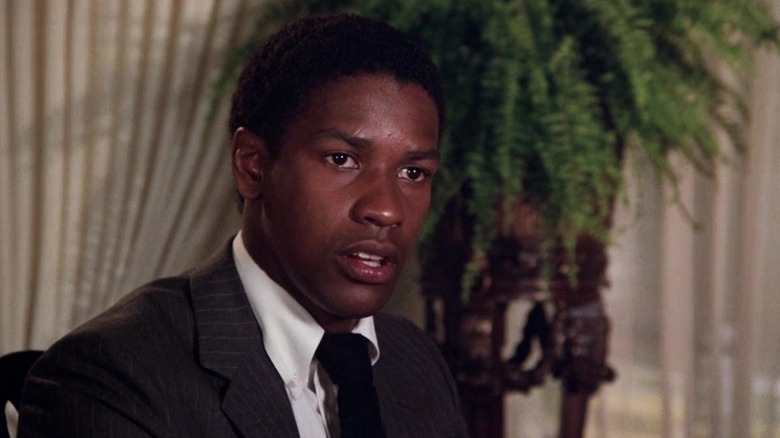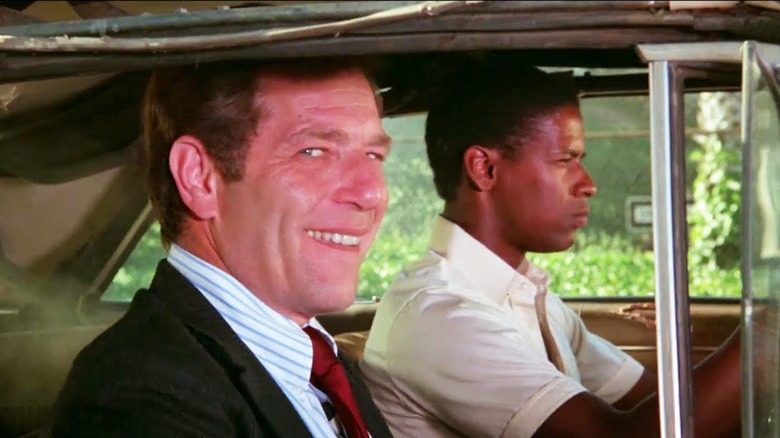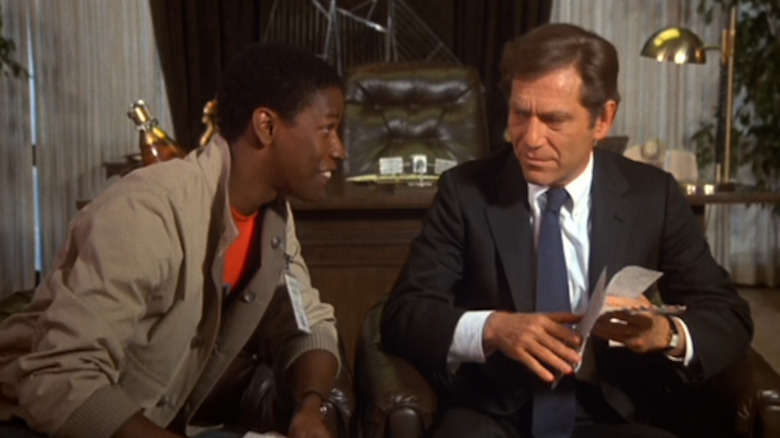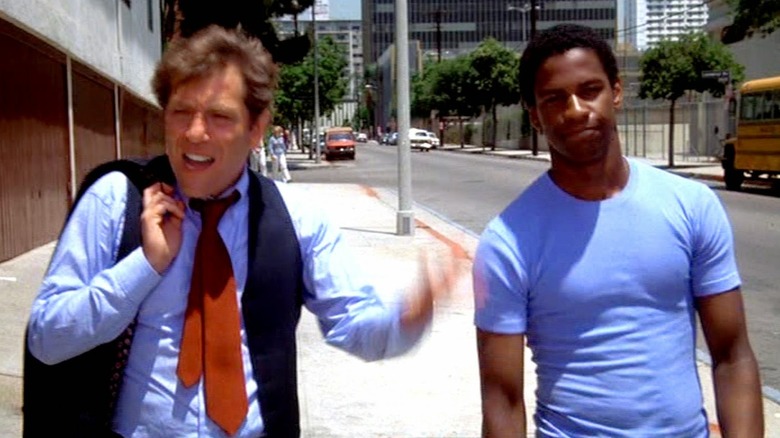99.9% of working actors are eternally in the hunt for that fabled “huge break” which is able to by no means, ever come. For a lot of, the hunt begins at school and regional theater, the place they outshine everybody; they’re so good, administrators are typically pressured to forged them nicely outdoors of their age vary as a result of their brilliance in a minor position will throw your complete showcase steadiness. Then they head off to school, the place they sometimes discover they are not the Olivier or Streep. After that, it is New York Metropolis or Hollywood, and both a visit again to graduate faculty to allow them to doubtlessly make a dwelling as a trainer or a resigned segue into one other profession.
In 1981, this was the wrestle in case you had been white. Should you had been an aspiring African-American actor, you had been taking part in a totally completely different recreation. Most stars of shade had been musicians or comedians — and male. Should you had been a personality actor, the roles tended in direction of servants, criminals, athletes, and smart outdated folks. Romantic leads had been extremely onerous to return by, and usually lacked for intercourse enchantment — as a result of had African-American performers been afforded the identical alternatives as whites, Billy Dee Williams and Lonette McKee would’ve been two of the largest stars of the Seventies.
So the cube had been loaded when 26-year-old Denzel Washington took his roll on the crapshoot that may be a skilled appearing profession. And even when these cubes turned up favorably, there was no assure the half can be worthy of his expertise.
That is what’s so irritating about “Carbon Copy.” On the floor, given the expertise concerned, it was a venture with affordable potential. But it surely’s so cloddishly executed, deeply unfunny and, in a single occasion, astonishingly insensitive that each one Washington’s presence can do is put the filmmakers to disgrace.
A promising idea ineptly executed
Washington had simply earned his first little bit of acclaim within the tv film “Wilma” (a biopic about Olympic sprinter Wilma Rudolph starring Shirley Jo Finney and Cicely Tyson) when he landed the co-lead in Michael Schultz’s “Carbon Copy.” Written by Stanley Shapiro (and primarily based on his play “The Engagement Child”), the movie sought to function on two ranges: a fish-out-of-water comedy and a high-society farce. The film units itself an fascinating problem early by tipping its hand and revealing that Washington’s teenaged Roger Porter is the organic son of George Segal’s rich govt Walter Whitney. There is a trace of sentiment right here as a result of it is apparent Walter actually beloved Roger’s mom (certainly, Schultz was himself the product of combined parentage), however this tenderness vanishes when Roger comes on suspiciously sturdy. He needs to stay with Walter.
This can be a big drawback for Walter, who’s already struggling via a loveless/sexless marriage with Susan Saint James’ heiress Vivian, which has him skating on the thinnest of ice together with her father (and his boss) Nelson (a surprisingly subdued Jack Warden). Realizing the younger man will not relent (and feeling some patriarchal obligation), he sells the idea of Roger dwelling with him to Vivian as a social venture which may impress their neighbors. However after a disastrous first dinner, the whole lot goes south for Walter. He loses his job, his Rolls Royce, will get kicked out of the home and winds up dwelling in a “furnished” Watts condominium the place he finds work cleansing horse stables.
Finally (and fairly conveniently), Vivian and Nelson have a change of coronary heart; they ask him to return again residence. After going to jail for a wrongly accused Roger, Walter appears absolved of his obligation to Roger. That is when Roger drops his ruse and speaks plainly to his father for the primary time since assembly him.
Denzel nonetheless finds a solution to shine
In a extra deftly written and directed movie, the jail visitation the place Roger explains why he clung so onerous to Walter may’ve packed a melancholy punch. Shapiro’s script units us as much as count on Roger to present Walter a “You are alright, Mr. Charlie” (that is been his nickname for Walter since they met) nod of approval, however he comes at him straight. Schultz principally holds the digicam on Washington and lets him low-key vent. As he tells Walter:
“I did not need something from you, Mr. Charlie. No adoption. No belief fund. Nothing. I simply got here out right here as a result of each child needs to see what his dad is like. I did not need you to love me as a result of I used to be your son. I wished you to respect me as a result of I used to be mother’s son. Once I seemed in your eyes, you did not see mother. You noticed black. And mother deserved higher than that. You owed her greater than that.”
Walter is aware of that is true, and, when requested, acknowledges to Roger that he beloved his mom very a lot. He walked away from an awesome girl for a extremely compromised good life (he is been hiding his Jewish heritage from his colleagues since transferring to California).
If I’ve made “Carbon Copy” sound like a worthwhile film, blame Washington. He is simply so terrific in that jail scene (The New York Instances’ Janet Maslin inexplicably discovered his efficiency disappointing) that you may see the potential right here for both an earnestly wistful comedy (particularly after we study Roger’s in pre-med at Northwestern on a full scholarship) or a barbed satire within the vein of Paul Mazursky’s “Down and Out in Beverly Hills.”
A consequence-free bomb for Denzel
However that is an unforgivably wretched movie from the outset. It kicks off with Walter making an attempt to power Vivian right into a little bit of morning intercourse — a cliched comedic little bit of enterprise that units itself aside by turning the state of affairs right into a full-blown tried rape. Assume that is rancid? Wait till Schultz and Shapiro repay that gag by having Vivian catch a masked Walter making an attempt to steal cash from their bed room secure, at which level she goads him into raping her (Schultz cuts away the second Walter rips the sheet up and about).
That the wealthy are completely different and extra wicked than you and me is hardly a revelation. But when you are going to try this excessive of a bar for a stomach snort, perhaps do it in a film that is not additionally making an attempt to be a good-hearted lamentation about American society’s disapproval of racially combined households.
“Carbon Copy” was a field workplace failure, however solely Segal and Schultz (who was just some years faraway from the debacle of “Sgt. Pepper’s Lonely Hearts Membership Band”) received damage. Two months after “Carbon Copy” tanked, Washington took the stage within the Off-Broadway smash “A Soldier’s Play.” Three years later, he co-starred within the critically praised movie adaptation.
Washington wasn’t flying blind. He knew popping out of “Carbon Copy” that he needed to be pickier going ahead. As he instructed Leisure Weekly:
“Sidney Poitier instructed me the primary three or 4 movies you make will decide the way you’re perceived on this enterprise. Afterward, I used to be supplied one other comedy, however it wasn’t humorous to me — I assumed it was fairly racist. I did not take it, and I waited about six months and I received ‘Cry Freedom’ [the 1987 biopic of South African activist Stephen Biko, for which Washington earned his first Oscar nomination]. That film modified the whole lot. I may have taken that dangerous comedy and had a completely completely different profession.”
He did make what’s most likely his second worst film in 1990 with “Coronary heart Situation” (how do you mess up a buddy comedy starring Washington and Bob Hoskins?), and he is had his share of slip-ups since. However he is by no means been related to something as wrongheaded as “Carbon Copy” — and that is partially as a result of the probabilities open to an African-American actor of his uncommon expertise expanded tremendously over the subsequent a number of a long time (although we nonetheless must work on the quantity of these alternatives).







